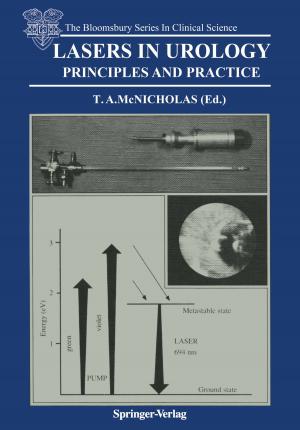Chemotherapy and Urological Malignancy
Nonfiction, Health & Well Being, Medical, Specialties, Urology, Oncology| Author: | ISBN: | 9781447113324 | |
| Publisher: | Springer London | Publication: | December 6, 2012 |
| Imprint: | Springer | Language: | English |
| Author: | |
| ISBN: | 9781447113324 |
| Publisher: | Springer London |
| Publication: | December 6, 2012 |
| Imprint: | Springer |
| Language: | English |
Chemotherapy for malignant disease has brought about many rapid and often spectacular improvements in the survival rate of some groups of patients. Yet enthusiasm for these successes has, in part, been offset by the problems in evaluating responses to treatment and by the disappointment of failing to check the progress of still so many other tumours. These reactions will be no surprise to the medical historian but perhaps the expectations from scientific progress nowadays sometimes demand more than can reasonably be expected. Another expectation is that any review of chemotherapy is com pletely up to date, even prophetic. Such is the expansion of the subject that new drugs and trial results are continually being reported but it is this very mass of information that creates its own problems and makes many clinicians despair of finding a balanced judgement on all of this information. This was the challenge accepted by Professor Spiers. He then gathered together a group of colleagues who are amongst the acknowledged leaders in the field of chemotherapy for urological tumours, all of whom have made important contributions to this subject. However, each chapter is not merely a record of the author's experience but encompasses an assessment of past and present practice as well as perspectives in diagnosis and management. Almost all chapters include reference to published work up to and including 1981.
Chemotherapy for malignant disease has brought about many rapid and often spectacular improvements in the survival rate of some groups of patients. Yet enthusiasm for these successes has, in part, been offset by the problems in evaluating responses to treatment and by the disappointment of failing to check the progress of still so many other tumours. These reactions will be no surprise to the medical historian but perhaps the expectations from scientific progress nowadays sometimes demand more than can reasonably be expected. Another expectation is that any review of chemotherapy is com pletely up to date, even prophetic. Such is the expansion of the subject that new drugs and trial results are continually being reported but it is this very mass of information that creates its own problems and makes many clinicians despair of finding a balanced judgement on all of this information. This was the challenge accepted by Professor Spiers. He then gathered together a group of colleagues who are amongst the acknowledged leaders in the field of chemotherapy for urological tumours, all of whom have made important contributions to this subject. However, each chapter is not merely a record of the author's experience but encompasses an assessment of past and present practice as well as perspectives in diagnosis and management. Almost all chapters include reference to published work up to and including 1981.















